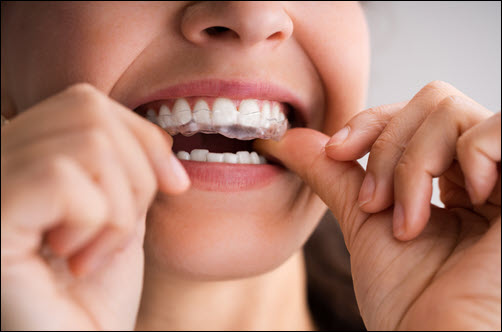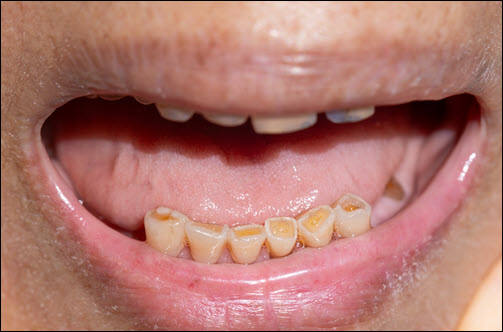Bruxism, or teeth grinding, damages enamel and weakens tooth structure. Grinding increases tooth sensitivity, jaw pain, and bite misalignment. Stress, anxiety, and poor sleep often trigger bruxism. Teeth grinding happens most frequently during sleep, but some people grind during the day. Untreated bruxism causes worn teeth, cracks, and gum recession. Preventing bruxism protects enamel, strengthens teeth, and reduces jaw strain. Wearing a night guard and managing stress reduces grinding and improves sleep quality. Professional care and proper oral habits reduce the impact of bruxism. Understanding how to prevent bruxism protects both teeth and jaw health. Let’s explore how to stop teeth grinding and protect your smile.
Identify the Causes of Bruxism
Bruxism results from stress, anxiety, and poor jaw alignment. Stress increases muscle tension and grinding during sleep. Misaligned teeth increase uneven bite pressure, leading to grinding. Poor sleep patterns increase muscle activity and grinding frequency. Caffeine and alcohol before bed increase nighttime teeth grinding. Sleep apnea and breathing issues increase jaw tension and grinding. Certain medications, such as antidepressants, increase the risk of bruxism. Poor posture and jaw clenching during the day increase muscle strain. Identifying the cause of bruxism improves treatment success. Reducing stress and improving sleep reduces grinding frequency. Addressing the cause strengthens teeth and jaw health.
Wear a Custom Night Guard
 A night guard protects teeth from grinding pressure and reduces jaw strain. Dentists create custom night guards that fit securely over teeth. The guard creates a barrier, reducing friction and enamel wear. Night guards absorb pressure, preventing cracks and tooth shifting. Wearing a guard reduces jaw tension and muscle fatigue. Proper fit improves comfort and prevents gum irritation. Night guards protect dental work such as crowns and fillings. Wearing a guard increases bite stability and reduces sensitivity. Custom-fit guards last longer and provide better protection. Consistent use improves sleep quality and reduces morning jaw pain. A night guard strengthens teeth and protects enamel.
A night guard protects teeth from grinding pressure and reduces jaw strain. Dentists create custom night guards that fit securely over teeth. The guard creates a barrier, reducing friction and enamel wear. Night guards absorb pressure, preventing cracks and tooth shifting. Wearing a guard reduces jaw tension and muscle fatigue. Proper fit improves comfort and prevents gum irritation. Night guards protect dental work such as crowns and fillings. Wearing a guard increases bite stability and reduces sensitivity. Custom-fit guards last longer and provide better protection. Consistent use improves sleep quality and reduces morning jaw pain. A night guard strengthens teeth and protects enamel.
Manage Stress and Anxiety
Stress increases muscle tension and grinding during sleep. Relaxation techniques reduce stress and improve jaw muscle relaxation. Deep breathing, meditation, and yoga reduce nighttime muscle activity. Managing work and personal stress reduces bruxism frequency. Physical exercise releases tension and improves sleep quality. Listening to calming music before bed improves relaxation and muscle comfort. Cognitive behavioral therapy (CBT) reduces stress-related grinding and jaw clenching. Progressive muscle relaxation reduces jaw tension and bite pressure. Reducing stress increases overall comfort and improves sleep patterns. Stress management protects enamel and reduces grinding damage. Relaxing the mind reduces grinding and strengthens tooth health.
Improve Sleep Quality
Poor sleep increases nighttime grinding and muscle tension. Establish a consistent sleep schedule to improve sleep patterns. Avoid caffeine and alcohol before bed to reduce muscle activity. Sleep in a quiet, dark room to increase sleep depth. Mouth breathing increases grinding and weakens jaw alignment. Breathing through the nose improves muscle relaxation and oxygen flow. Sleeping on your back reduces jaw tension and grinding pressure. Proper pillow support improves neck alignment and reduces jaw strain. Better sleep quality reduces grinding frequency and jaw pain. Improved sleep strengthens teeth and increases bite comfort. Restful sleep reduces stress and improves dental health.
Correct Jaw Alignment and Bite Issues

Misaligned teeth increase grinding pressure and muscle strain. Orthodontic treatments, such as braces or aligners, improve bite alignment. Balanced bite pressure reduces grinding and enamel wear. Jaw exercises strengthen muscles and improve alignment. Wearing a retainer after orthodontic treatment maintains bite position. Dentists adjust high fillings or crowns to improve bite balance. Proper bite alignment reduces jaw tension and muscle fatigue. Reduced grinding pressure protects enamel and improves chewing comfort. Balanced jaw alignment increases muscle relaxation and reduces strain. Correcting alignment improves overall dental strength and comfort. Proper bite strength reduces the risk of future grinding.
Limit Caffeine and Alcohol Consumption
Caffeine and alcohol increase muscle activity and grinding during sleep. Avoiding coffee, tea, and soda before bed reduces muscle tension. Alcohol relaxes throat muscles, increasing snoring and jaw strain. Caffeine increases heart rate and jaw muscle activity. Replacing caffeinated drinks with herbal tea improves sleep quality. Avoiding alcohol reduces nighttime grinding and muscle fatigue. Drinking water throughout the day improves muscle relaxation. Reducing sugar intake reduces plaque buildup and enamel sensitivity. Better hydration increases muscle function and reduces jaw tension. Balanced nutrition improves sleep quality and dental health. Reducing caffeine and alcohol strengthens overall oral health.
Avoid Chewing on Hard Objects
Chewing on hard objects increases jaw tension and enamel wear. Avoid chewing on pens, ice, or fingernails. Hard chewing increases jaw muscle strain and grinding risk. Chewing gum for long periods increases jaw tension. Use sugar-free gum in moderation to strengthen jaw muscles. Soft chewing increases muscle relaxation and bite balance. Avoiding hard and sticky foods reduces tooth sensitivity. Softer foods reduce jaw pressure and muscle fatigue. Balanced chewing reduces the risk of enamel cracks and damage. Better chewing habits improve bite alignment and comfort. Protecting teeth from hard chewing reduces grinding and improves dental health.
Boosting Confidence with a Relaxed Jaw and Stronger Teeth
Preventing bruxism strengthens teeth and improves jaw comfort. Reduced grinding increases chewing efficiency and bite strength. Proper jaw alignment improves facial balance and smile symmetry. Relaxed muscles increase comfort while eating and speaking. Better sleep quality increases energy and improves overall health. Stronger teeth improve confidence in social and professional settings. Balanced jaw pressure reduces enamel wear and tooth sensitivity. Less grinding increases overall comfort and dental health. A confident smile improves personal and social interactions. Reduced muscle tension increases overall comfort and relaxation. Stronger teeth and better jaw alignment improve daily comfort and confidence.
Preventing bruxism protects enamel and strengthens jaw muscles. Managing stress and improving sleep reduces grinding and muscle strain. Wearing a night guard protects teeth from pressure and damage. Correcting jaw alignment reduces muscle tension and improves bite strength. Avoiding caffeine and alcohol reduces nighttime grinding and jaw tension. Softer chewing habits improve muscle relaxation and enamel protection. Professional care strengthens teeth and improves overall bite balance. Investing in better oral care reduces bruxism risk and strengthens enamel. A balanced, relaxed jaw increases dental comfort and bite strength. Stronger teeth and improved alignment create a healthier, more confident smile.

